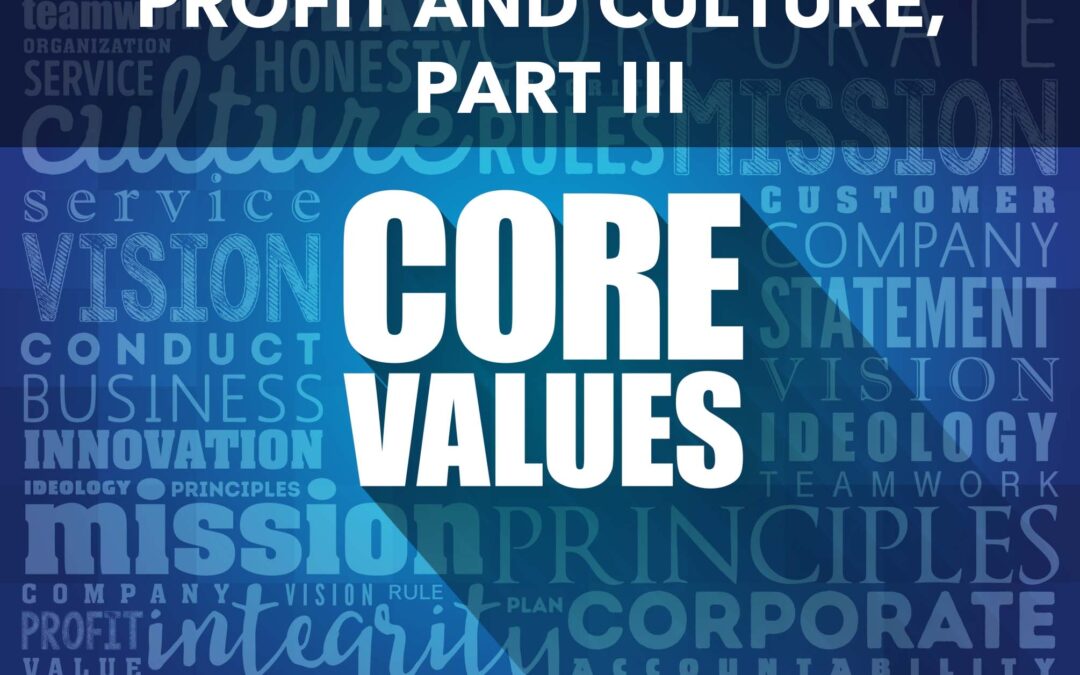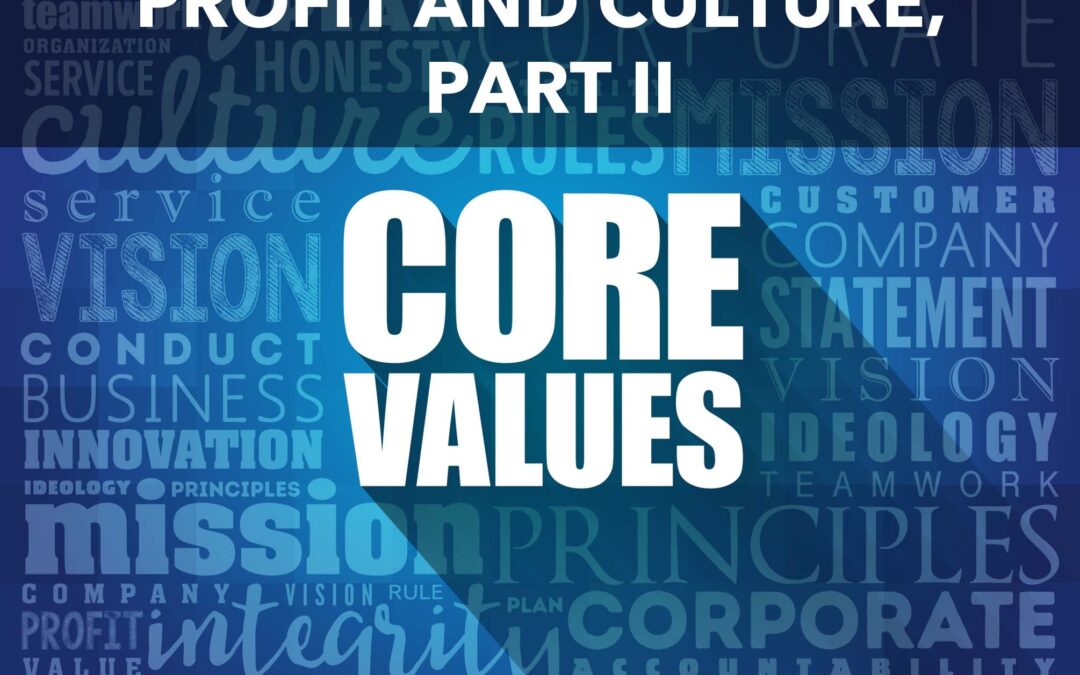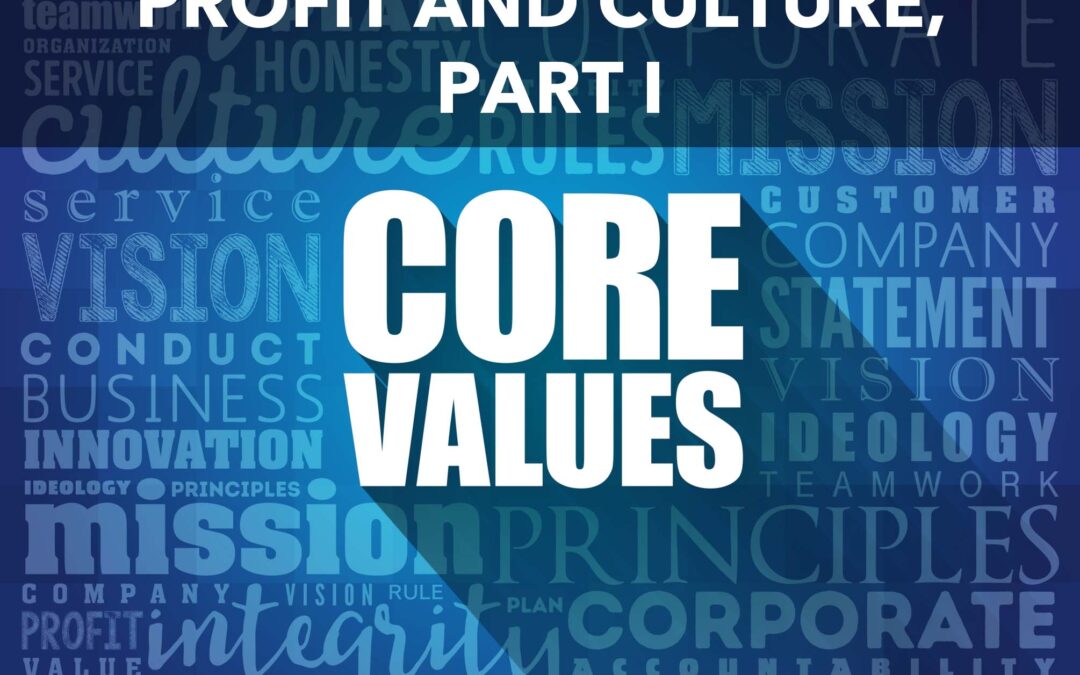
Connecting Purpose, Profit and Culture, Part III
Part III: Creating & Maintaining a Good Business Culture Isn’t Just Good for Business
Businesses each have their own unique culture which contribute to the larger world culture. What kind of contribution is your business making?
We all know how a negative person or bad attitude can affect the people & things around them. It is similar with a business culture. Your business culture affects those inside it and those outside of it. If your business tolerates negative behavior and attitudes or staff being rude to patients or customers, that negativity is carried forward to others inside your business walls and outside your walls. If your business emits wastes that harm the environment, that impacts all of us.
At Simon Eye, we created our own “Declaration of Culture” that clearly describes how we expect all staff to operate and interact with patients, doctors, fellow staff, vendors, and anyone else we meet. Respect, Friendliness, Professionalism, Service are like mantras you’ll often hear. Are we perfect? Unfortunately, No. However, we are committed to improving each day and to making up for any interaction that was less than stellar.
When our staff were asked, who is responsible for creating and maintaining our ideal culture at Simon Eye? The answer was every single one of us. When asked, when do we need to do this? Every single day, of course. It is not a one-time thing. It is not just the top executives as they cannot be in all places at all times to observe and handle an infringement of our “Declaration of Culture”. It takes every staff member to be alert to and take responsibility for creating and maintaining the best culture possible for ourselves and everyone we interact with. We all live in it, so we all need to be responsible for making it the best. This is very similar to what is needed to make a better world culture.
In an ideal world, the Universal Declaration of Human Rights would naturally be adhered to. All citizens would take responsibility for it and be in action, not apathy. It would be a world with great tolerance, high ethics, and respect for all living things, where we would help each other and focus on solutions. We would use communication, not war to settle differences. Education systems would be directed to the full development of the human personality. The culture would be filled with truth, not lies, false information, and deception. One wouldn’t think of doing something like discriminating against another or selling, torturing, or treating another human being with cruelty, or releasing harmful medications, drugs & treatments into the society, making weapons that could destroy the entire planet, or even think of turning their head when another doesn’t have adequate food, water, shelter, or adequate health care. In an ideal culture, our food supply would exist to provide nourishment, not damage health. We wouldn’t dare pollute the air we breathe or water we drink and bathe in. Those things just wouldn’t happen. But here we are, and those things do happen. Which only means we have more work to do. The only correct thinking at this point is something can and must done about it. Now, back to business.
What Can Your Business Do?
- Create your own “Declaration of Culture.” Clearly define how your business will operate for the benefit of all constituents. How will you treat customers? How will staff treat each other? What responsibility will you take for your community/world (the culture beyond your business walls)? How will you promote the Universal Declaration of Human Rights (UDHR) and UN Sustainable Development Goals (SDGs)?
- Make it more than words on a page. Live it.
- Provide caring feedback every day to make sure others live it too.
- Identify and train your own Culture Ambassadors; staff who know the importance and have a strong desire to help create and maintain an Ideal Culture for your business.
- Recognize staff who “go the extra mile” and are model Culture Ambassadors.
- Create a great patient/customer experience. When your customers leave happy, they take that happiness with them.
Creating and maintaining a top-notch culture in your business, not only helps your bottom line, staff retention, and customer loyalty, it contributes to a better world culture. Look and see, what kind of contribution is your business making?
As customer service guru, Shep Hyken, has shared, “Amaze it Forward.” Practice being amazing! Your business will benefit and if we act soon enough and fast enough, we will end up in a much better world.
Post by: Ellen Firestone


